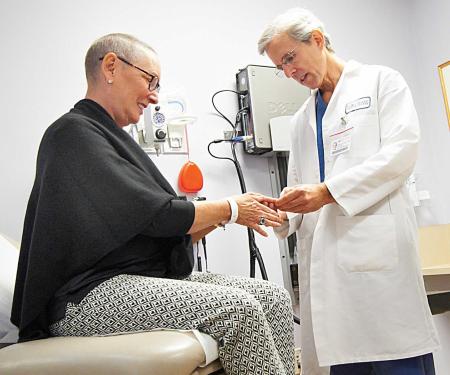Biopsy
Once a tumor has been identified, a biopsy is necessary to obtain a tissue sample, which is required in order to make a diagnosis and to determine the cancer staging. In a traditional core needle biopsy, a fine needle to collect a number of tissue samples, which are then examined for cell abnormalities that are a sign of cancer. Fox Chase radiologists specialize in performing image-guided biopsies. Using ultrasound, CT or MRI guidance, radiologists can sample even small lesions or lesions that are difficult to access by other means, as well as biopsies on patients with complicating medical factors. All biopsies performed at Fox Chase are minimally invasive.
Risk Assessment and Genetic Testing
Fox Chase offers a Risk Assessment Program for individuals and families at risk for cancer and those with cancer. Our team of physicians, nurses and genetic counselors provides clinical and genetic evaluation and testing, screening and cancer risk-reduction services. To contact Fox Chase about these programs call 877-627-9684.





